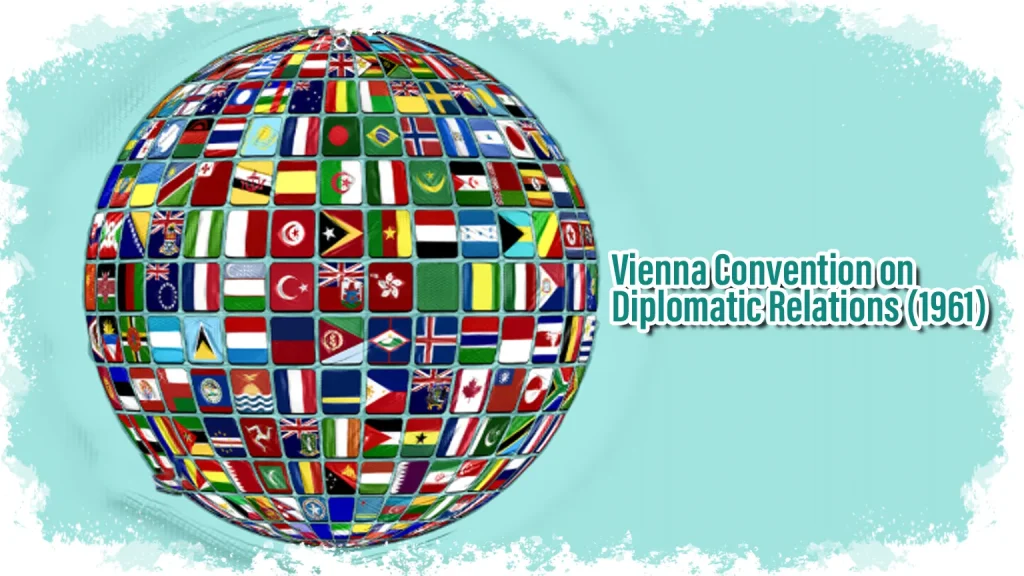Syllabus:
GS2: Bilateral, regional and global groupings and agreements involving India and/or affecting India’s interests.
Context:
Recently, India downgraded its diplomatic relations with Pakistan in the aftermath of the Pahalgam attack bringing Vienna Convention on Diplomatic Relations of 1961 into limelight.
More on the News
- India suspended the 1960 Indus Water Treaty following the terror attack in Pahalgam, Jammu & Kashmir.
- The Defence/Military, Naval and Air Advisors in the Pakistani High Commission in New Delhi were declared Persona Non Grata.
Vienna Convention on Diplomatic Relations (1961)
- It is a United Nations treaty that sets some common principles and terms on how countries must treat each other’s diplomatic representatives, to ensure friendly relations and maintain proper communication channels between countries.
- It was adopted on 14th April 1961 by the United Nations Conference on Diplomatic Intercourse and Immunities held at the Neue Hofburg in Vienna, Austria.
- At present, 193 countries have ratified the convention, making the convention legally binding on them.
- India ratified the convention in 1972 through the Diplomatic Relations (Vienna Convention) Act of 1972.
Provisions of the Vienna Convention

- Article 9: The host country can declare any diplomat “persona non grata” (unwelcome) at any time without giving a reason. The sending country must then either recall the diplomat or end their duties.
- Article 11: If there is no specific agreement, the host country can limit the size of a diplomatic mission based on what it considers reasonable, depending on its own conditions and the mission’s needs.
- Article 22: The premises of the mission (diplomats and staff in a host country) shall be inviolable, the agents of the receiving State may not enter them except with the consent of the head of the mission.
- A “receiving State” refers to the host nation where a diplomatic mission is located.
- Article 26 talks about the freedom of movement of all members of the mission. It states that “subject to its laws and regulations concerning zones entry into which is prohibited or regulated for reasons of national security, the receiving State shall ensure to all members of the mission freedom of movement and travel in its territory.”
- Article 27 provides that “the receiving State shall permit and protect free communication on the part of the mission for all official purposes.”
- Article 29 talks about diplomatic immunity, it states that “The person of a diplomatic agent shall be inviolable (may not be derogated). He shall not be liable to any form of arrest or detention. The receiving State shall treat him with due respect and shall take all appropriate steps to prevent any attack on his person, freedom or dignity.”
- The diplomatic immunity flows from two conventions, popularly called the Vienna Conventions — the 1961 Convention and the Convention on Consular Relations, 1963.
Mains Practice Question
Q: The Vienna Convention on Diplomatic Relations (1961) plays a crucial role in maintaining international diplomatic norms, especially during times of bilateral tensions.” In the context of recent developments in India-Pakistan relations, discuss the relevance and key provisions of the Vienna Convention.

